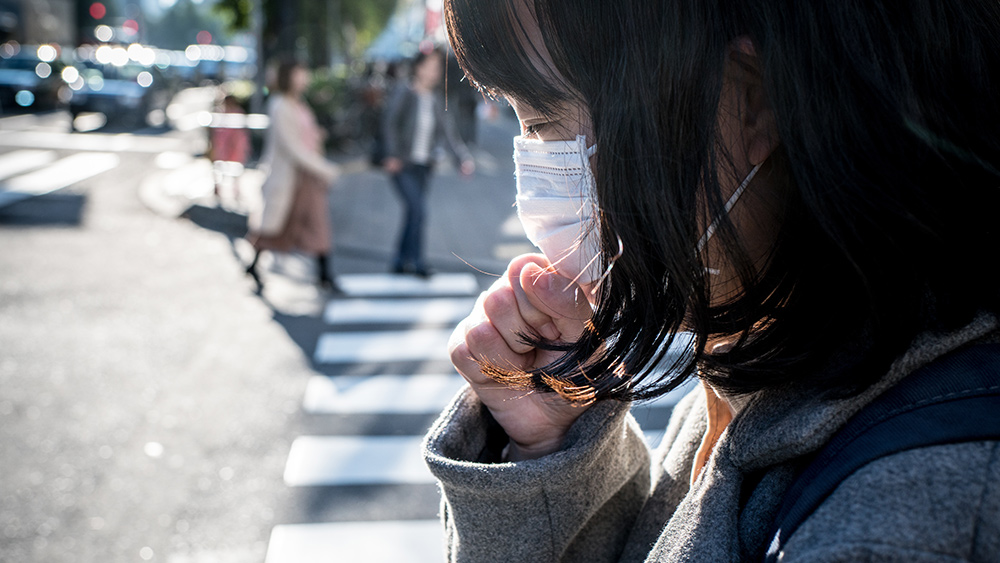Almost 900 workers test positive for coronavirus at Tyson’s meatpacking plant in Indiana
05/01/2020 / By Franz Walker

Nearly 900 workers have tested positive for the coronavirus (COVID-19) at a Tyson Foods meatpacking plant in north-central Indiana, according to a report. The food processing facility at Cass County’s Logansport saw 890 people at the plant infected with the coronavirus after all of its 2,200 workers underwent testing.
The facility, which produces 3 million pounds of pork daily, is one of several Tyson Foods plants across America that have been closed due to the COVID-19.
“The combination of worker absenteeism, COVID-19 cases and community concerns has resulted in a collective decision to close,” Steve Stouffer, of Tyson’s beef-and-pork subsidiary, said to the Associated Press.
Meatpacking facilities struggling with the virus
The Tyson plant was initially closed after 47 people in Cass County tested positive for the coronavirus. A number of these cases were traced back to Tyson employees, resulting an initial report of 146 infections.
In response to these initial cases, the company temporarily suspended production at the plant on April 20 to allow for cleaning and sanitizing, with production resuming under a limited capacity the next day. Further testing on April 23 resulted in more positive results — eventually hitting 890 cases — forcing the plant to be closed on a more long-term basis.
Tyson’s Cass County plant is just one of many meatpacking facilities in the United States that has struggled to deal with the ongoing coronavirus pandemic. Preventing the spread of the virus has proved challenging in these facilities, where workers work side by side on production lines and often share locker rooms, cafeterias and rides to work.
Several other meat facilities have temporarily closed due to outbreaks of the virus. These include a Smithfields foods plant in Sioux Falls, South Dakota, a Redwood Farms Meat Processors in Estherville, Iowa and a JBS USA plant in Worthington, Minnesota. Other plants, on the other hand, have remained open or resumed production after pauses for testing and sanitation.
As a result of the closures, an estimated 25 percent of the country’s pork processing capacity either sits idle or is working at reduced operating speed, said Steve Meyer, an economist with Kerns and Associates in Ames, Iowa.
These closures, Tyson’s Stouffer warns, will have consequences for consumers.
“Closing facilities have serious implications to the national food supply for American families, local communities, growers and farmers,” Stouffer said. ”When a facility closes, the availability of protein for consumers across the nation will only decrease.”
Prices of pork are already starting to rise as a result, with some warning of an impending shortage of certain products at grocery stores. At the same time, the excess supply caused by the shuttered plants is causing hog prices to plummet, hurting farmers.
Executive order signed to stave off meat shortage
To prevent a meat shortage, President Donald Trump signed an executive order Tuesday, designating meat processing plants as critical infrastructure; compelling them to stay open.
“And we’ll be in very good shape,” the president said when asked about the order. “We’re working with Tyson, which is one of the big companies in the world. And we always work with the farmers. There’s plenty of supply, as you know. There’s plenty of supply. It’s distribution. And we will probably have that today solved. It was a very unique circumstance, because of liability.”
The president said that the step would ensure an ample supply of meat for U.S. consumers; however, it provoked swift backlash from unions. The latter stated that the administration needed to do more to protect workers in the meatpacking industry.
“To protect America’s food supply, America’s meatpacking workers must be protected,” read a statement from the United Food and Commercial Workers. ”The reality is that these workers are putting their lives on the line every day to keep our country fed during this deadly outbreak, and at least 20 meatpacking workers have tragically died from coronavirus while more than 5,000 workers have been hospitalized or showing symptoms.”
Responding to safety concerns, a spokesman for the Department of Agriculture stated that it “fully recognizes the need to keep workers and inspectors safe during the COVID-19 national emergency.”
Sources include:
Tagged Under: China, closure, coronavirus, covid-19, Flu, food safety, food shortage, food supply, government, grocery, infections, meat, meat products, meat shortage, meatpacking, outbreak, pandemic, plant closure, superbugs, USDA, virus
RECENT NEWS & ARTICLES
COPYRIGHT © 2017 PLAGUE INFO



















